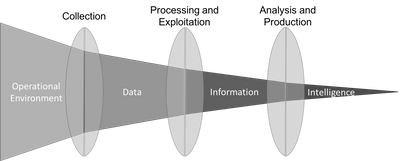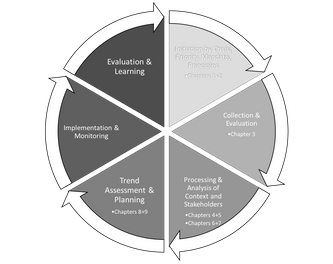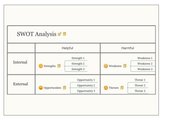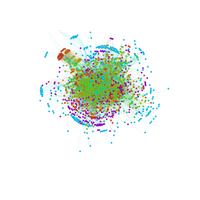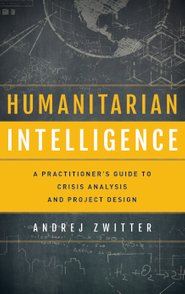WHAT IS HUMANITARIAN INTELLIGENCE (HI)?
“Humanitarian intelligence” is defined as:
The use of investigative and analytical techniques in service of rapid and continuous assessment,
project and program development, impact evaluation and learning.
Why HI is necessary?
Humanitarian Intelligence (HI) is a specific skill set for data collection, preparation, analysis and decision making in humanitarian and development aid. As such, it is a prerequisite for any programme and project design.
In essence, humanitarian intelligence is information prepared in such a way that humanitarian organisations can readily take decisions of strategic, tactical and operational level.
What tools does HI contain?
Within the Humanitarian Intelligence Cycle a set of different tools is necessary to come from data to intelligence:
- Data and Source Reliability Checks
- Context Analysis Tools
- Stakeholder and Social Network Analysis
- Scenario Planning
- Forecasting
- etc.
Lecture Resources
This section contains all graphs and tables as well as the review questions for the use in lectures, trainings and application.
Software & Tools
HI of complex environments frequently requires the help of software for visualisation and analysis. Here you can find original software developed for the book, files complementary to the chapters and links to third party software solutions.
Case Studies
As additional service, this section will be increasingly filled with case studies conducted during the courses on humanitarian intelligence. If you would like to showcase your own cases, please email the author.
About the book
The book "Humanitarian Intelligence - A Practitioner's Guide to Crisis Analysis and Project Design" provides the necessary tools and skills to conduct data collection, validation and analysis for a successful project and programme design.
All 24 tools are accompanied by step-by-step guides, and every chapter concludes with review questions. Additional resources can be found on this website.
